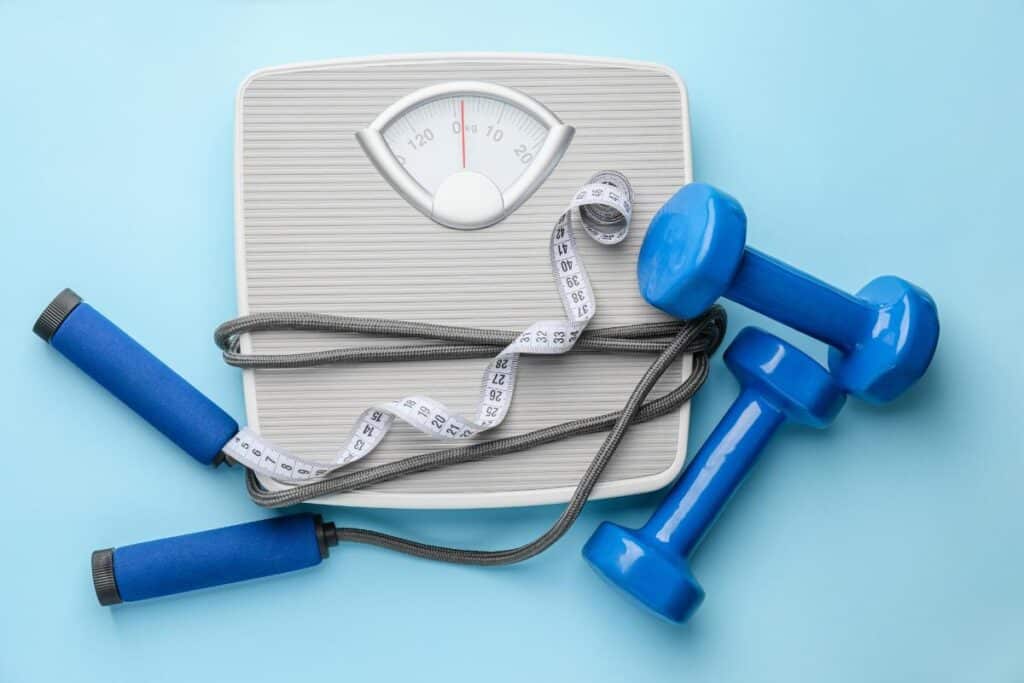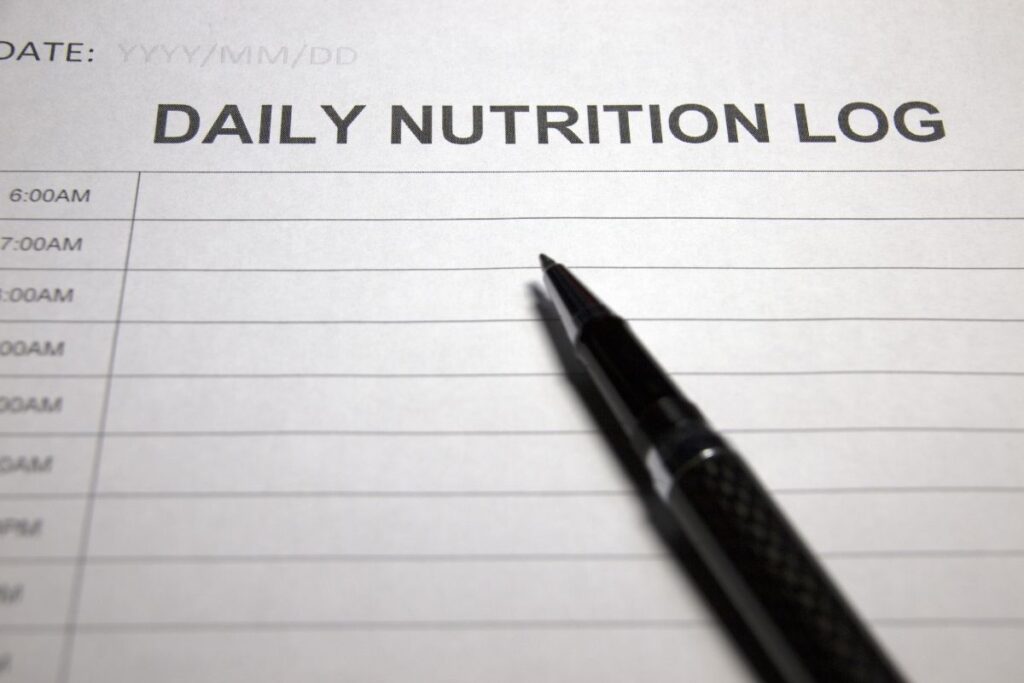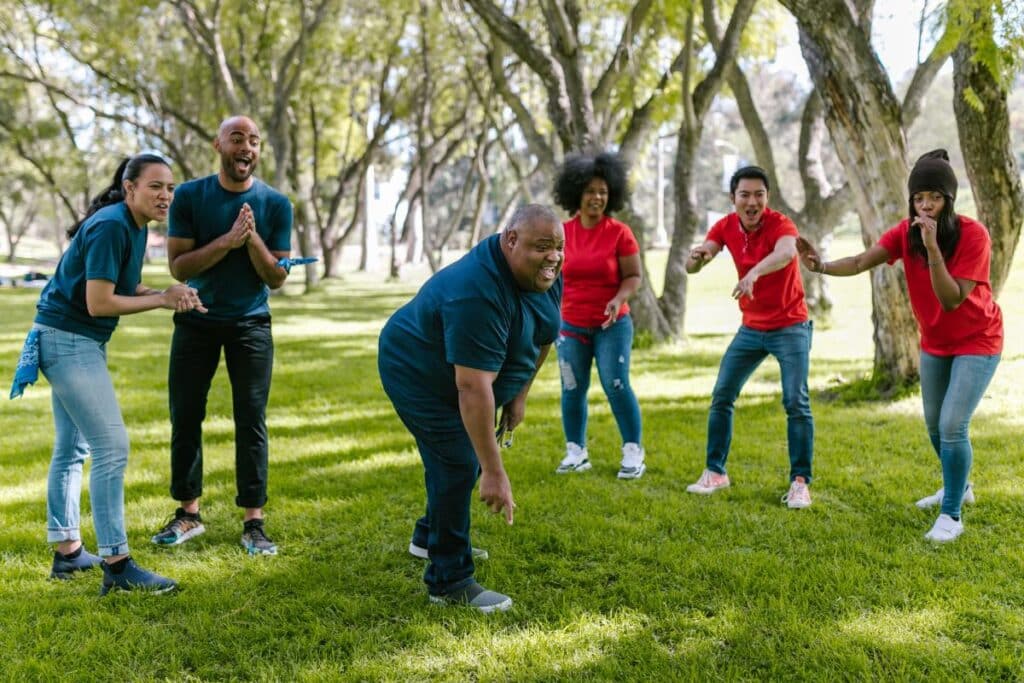Are you looking for the ultimate guide to losing weight according to a fitness trainer? Losing weight can be a challenge, but it’s definitely possible with the right approach. Weight loss is a symptom of a healthy metabolism. When the body is healthy it will reach the optimum weight to improve physical performance (working, playing, walking, etc).
According to the World Health Organization the leading causes of obeisity is a sedentary life style and process food. Therefore eat better and move more to lose weight. As a fitness trainer, I’ve helped hundreds of people lose weight and keep it off. In this guide, I’ll share my best advice for losing weight safely and effectively.
I’ll cover everything from setting realistic goals to creating a healthy eating plan to finding an exercise routine that works for you. I’ll also provide tips on how to deal with setbacks and stay motivated on your weight loss journey.
If you’re ready to lose weight and improve your health, this guide is for you. Let’s get started!

How to Use Nutrition for Losing Weight
Nutrition is an important part of any weight loss plan. Hippocrates the father of modern medicine said let food be your medicine and medicine be your food. Therefore get healthy to lose weight instead of losing weight to get healthy.
By making healthy choices about what you eat, you can help to create a calorie deficit, which is necessary for weight loss. Increasing your metabolism is the best way to lose weight. The majority of the calories we burn are burned by our metabolism. Four organs the brain, kidneys, liver, and heart account for 6% of your bodyweight and 55% of your metabolism.
Here are some tips for using nutrition for losing weight:
- Eat plenty of fruits and vegetables. Fruits and vegetables are low in calories and high in nutrients, making them a great choice for weight loss.
- Choose lean protein sources. Lean protein sources, such as chicken, fish, and beans, are low in fat and calories, and they can help you feel full.
- Limit processed foods. Processed foods are often high in calories, fat, and sugar, and they can make it difficult to lose weight.
- Drink plenty of water. Water is essential for good health, and it can also help you feel full.
By following these tips, you can use nutrition to help you lose weight and improve your health.
Here are some additional tips that you may find helpful:
- Eat breakfast every day. Skipping breakfast can lead to overeating later in the day.
- Eat regular meals and snacks throughout the day. This will help to keep your blood sugar levels stable and prevent you from getting too hungry.
- Cook at home more often. This will give you more control over the ingredients in your meals.
- Read food labels carefully. Pay attention to the calories, fat, and sugar content of the foods you choose.
- Don’t be afraid to ask for help. If you’re struggling to lose weight on your own, talk to your doctor or a registered dietitian.
Healthy Smoothie for Meal Replacement
- 1 Cup of Beet Juice
- 8 Grams of Creatine
- 1 Guava
- 1 Kiwi
- 1 thumb size Ginger Root
- 1 Cup of Zero Sugar Greek Yogurt

How to Use Exercise for Losing Weight
Exercise is an important part of any weight loss plan. It can help you burn calories, build muscle, and improve your overall health. Exercise can be used to burn about 10% of the calories you eat. Therefore exercise should be used like supplement to natural activities.
The majority of the calories should be burned from an active lifestyle while exercise is used to improve your physical performance to keep you moving through out the day. Exercise can be used to improve speed, endurance, power, strength, balance, and flexibility.
Here are some tips for using exercise for losing weight:
- Aim for at least 30 minutes of moderate-intensity exercise most days of the week.
- Choose activities that you enjoy and that you can stick with.
- Gradually increase the intensity and duration of your workouts over time.
- Strength train at least twice a week. Strength training can help you build muscle, which can help you burn more calories at rest.
- Find an exercise buddy. Having someone to work out with can help you stay motivated and accountable.
- Don’t give up. Weight loss takes time and effort, but it’s definitely possible with the right approach. So don’t give up, and keep moving forward!
Here are some additional tips that you may find helpful:
- Warm up before you start exercising and cool down afterwards.
- Listen to your body and don’t push yourself too hard.
- Stay hydrated by drinking plenty of water before, during, and after your workouts.
- Wear comfortable clothing and shoes that are appropriate for the activity you’re doing.
- Protect yourself from the sun by wearing sunscreen and a hat.
- If you have any health concerns, talk to your doctor before starting an exercise program.
By following these tips, you can use exercise to help you lose weight and improve your health.
Best Exercises for Weight Loss
- Squat
- Deadlift
- Push Ups
- Pull Ups
- Walking
- Running (sprinting or Cardio)
- Jumping (Rope or Broad)
- Boxing (bag or shadow)
- Burpees

How to Use Nutritional Supplements for Losing Weight
Nutritional supplements can be a helpful addition to a weight loss plan, but they are not a magic bullet. They can help you lose weight by:
- Boosting your metabolism. Some supplements, such as green tea extract and caffeine, can help to boost your metabolism, which can help you burn more calories throughout the day.
- Suppressing your appetite. Some supplements, such as glucomannan and garcinia cambogia, can help to suppress your appetite, which can help you eat less.
- Improving your gut health. A healthy gut is essential for weight loss. Some supplements, such as probiotics, can help to improve your gut health and promote weight loss.
However, it is important to note that supplements are not a substitute for a healthy diet and exercise. If you are looking to lose weight, it is important to make changes to your lifestyle, such as eating a healthy diet and exercising regularly. Supplements can be a helpful addition to your weight loss plan, but they should not be used as a replacement for a healthy lifestyle.
Here are some tips for using nutritional supplements for weight loss:
- Talk to your doctor before taking any supplements. Your doctor can help you determine if supplements are right for you and can recommend safe and effective supplements.
- Choose supplements that have been clinically studied for weight loss. There are many supplements on the market that claim to help with weight loss, but not all of them have been studied. Choose supplements that have been clinically studied and have been shown to be effective.
- Start with a low dose and increase the dose gradually as needed. Some supplements can have side effects, so it is important to start with a low dose and increase the dose gradually as needed.
- Take supplements with food. Some supplements can cause stomach upset if taken on an empty stomach. Take supplements with food to reduce the risk of stomach upset.
- Don’t take supplements for more than 12 weeks. Some supplements can lose their effectiveness if taken for more than 12 weeks. If you don’t see results after 12 weeks, stop taking the supplement and talk to your doctor.
If you are pregnant or breastfeeding, you should not take any supplements without talking to your doctor.
Supplements for Weight Loss
- Black Seed Oil
- Fish Oil
- Probiotics
- Multivitamins
- Berberine

How to Use Measurements Such as a Calorie Deficit, Calorie Maintenance, Body Weight, and Physical Performance During Exercise for Losing Weight
Here are some ways to use measurements such as a calorie deficit, calorie maintenance, body weight, and physical performance during exercise for losing weight:
- Calorie deficit: A calorie deficit is when you burn more calories than you consume. This is the key to losing weight. You can create a calorie deficit by eating fewer calories, exercising more, or both.
- Calorie maintenance: Calorie maintenance is the number of calories you need to eat in order to maintain your current weight. You can calculate your calorie maintenance by using a calorie calculator.
- Body weight: Body weight is a good indicator of your overall health. If you are overweight or obese, you are at an increased risk for developing chronic diseases such as heart disease, stroke, type 2 diabetes, and some types of cancer. Losing weight can help you reduce your risk of developing these diseases.
- Physical performance during exercise: Physical performance during exercise can be a good indicator of your fitness level. If you are able to exercise for longer periods of time and with more intensity, it means that you are getting fitter. Getting fitter can help you lose weight more easily.
Here are some tips for using these measurements to lose weight:
- Track your calories: The first step to creating a calorie deficit is to track your calories. There are many different ways to track your calories, such as using a food journal or a calorie counting app.
- Set realistic goals: When you are trying to lose weight, it is important to set realistic goals. Aim to lose 1-2 pounds per week. Losing weight too quickly can be unhealthy.
- Make gradual changes: Don’t try to change your entire lifestyle overnight. Make gradual changes to your diet and exercise habits. These changes will be more sustainable in the long run.
- Be patient: Losing weight takes time and effort. Don’t get discouraged if you don’t see results immediately. Just keep at it and you will eventually reach your goals.
It is important to note that losing weight is not a one-size-fits-all approach. What works for one person may not work for another. It is important to find an approach that is sustainable and that you can stick with long-term. If you are struggling to lose weight, talk to your doctor. They can help you develop a personalized weight loss plan.

How to Use Natural Activities Like Working, Playing, and Sleeping for losing weight.
There are many ways to use natural activities like working, playing, and sleeping for losing weight. Here are a few tips:
- Work: If you have a job that requires you to be active, you’re already one step ahead. But even if you have a desk job, you can still get some exercise by taking breaks throughout the day to walk around or do some light stretching.
- Play: Playing sports or going for walks is a great way to burn calories and have fun at the same time. If you’re not into traditional sports, there are plenty of other ways to get moving, like dancing, hiking, or playing tag with your kids.
- Sleep: Getting enough sleep is essential for weight loss. When you’re sleep-deprived, your body produces more of the stress hormone cortisol, which can lead to increased appetite and weight gain. Aim for 7-8 hours of sleep per night.
Here are some additional tips for using natural activities to lose weight:
- Make it fun: If you’re not enjoying yourself, you’re less likely to stick with it. So find activities that you enjoy and that challenge you.
- Set realistic goals: Don’t try to do too much too soon. Start with small changes and gradually increase the intensity and duration of your activities over time.
- Find a support system: Having friends or family members who are also trying to lose weight can help you stay motivated.
- Don’t give up: Losing weight takes time and effort. Don’t get discouraged if you don’t see results immediately. Just keep at it and you will eventually reach your goals.
Remember, losing weight is a journey, not a destination. Enjoy the process and don’t be afraid to celebrate your successes along the way.
The final Conclusion on the Ultimate Guide to Losing Weight According to a Fitness Trainer
Losing weight can be a challenge, but it is definitely possible with the right approach. A fitness trainer can help you develop a personalized plan that includes diet, exercise, and behavior modification. By following your plan and staying motivated, you can reach your weight loss goals and improve your overall health.
Here are some additional tips that I would include in the guide:
- Set realistic goals. Don’t try to lose too much weight too quickly. Aim for a healthy rate of weight loss of 1-2 pounds per week.
- Make gradual changes to your diet and exercise habits. Trying to make too many changes at once is a recipe for failure. Start by making small changes that you can stick with, and then gradually increase the intensity and duration of your workouts over time.
- Find an exercise buddy. Having someone to work out with can help you stay motivated and accountable.
- Don’t give up. Weight loss is a journey, not a destination. There will be setbacks along the way, but don’t let them discourage you. Just pick yourself up and keep going.
I hope this guide helps you on your weight loss journey. Remember, losing weight takes time and effort, but it’s definitely possible with the right approach. So don’t give up, and keep moving forward! If you are on a weight loss journey, share this article on Facebook or Twitter to help others learn more about losing weight.




